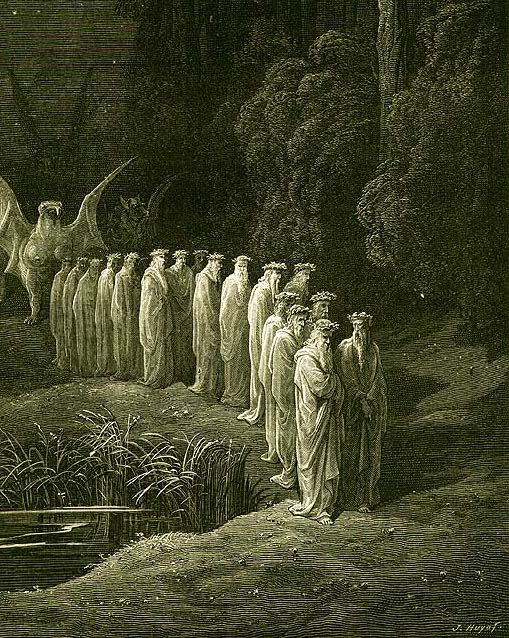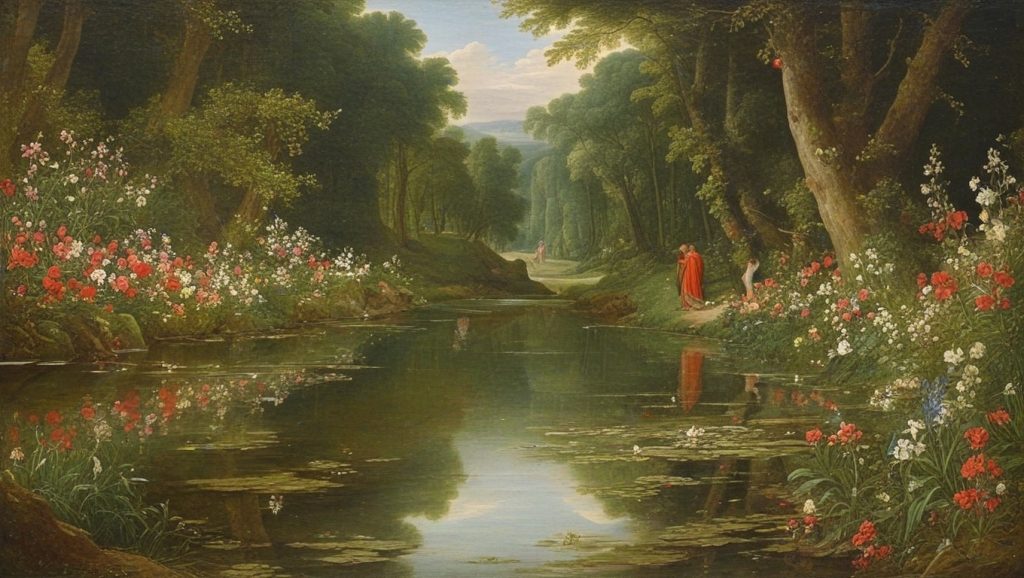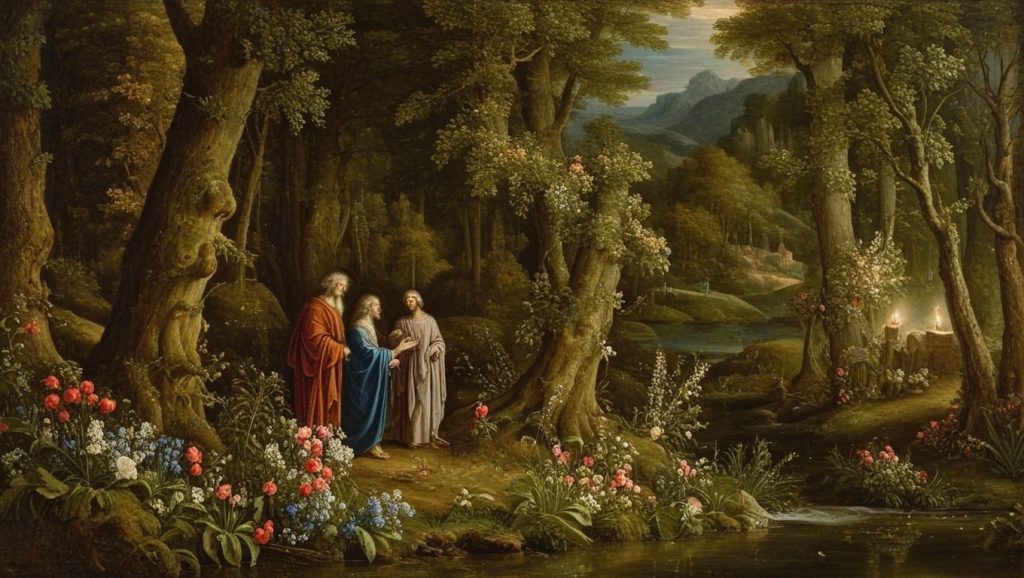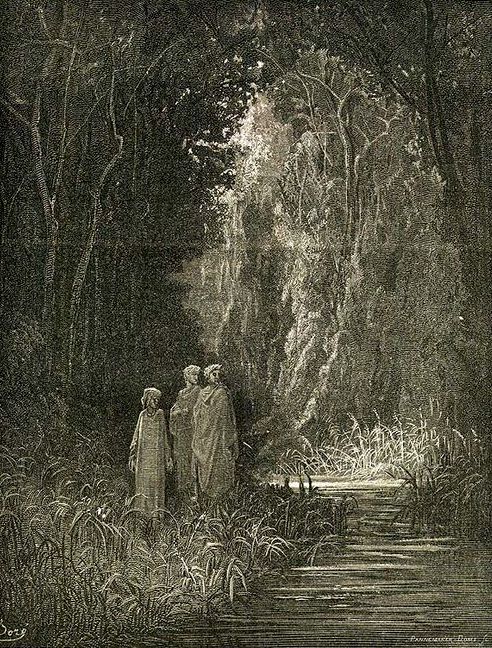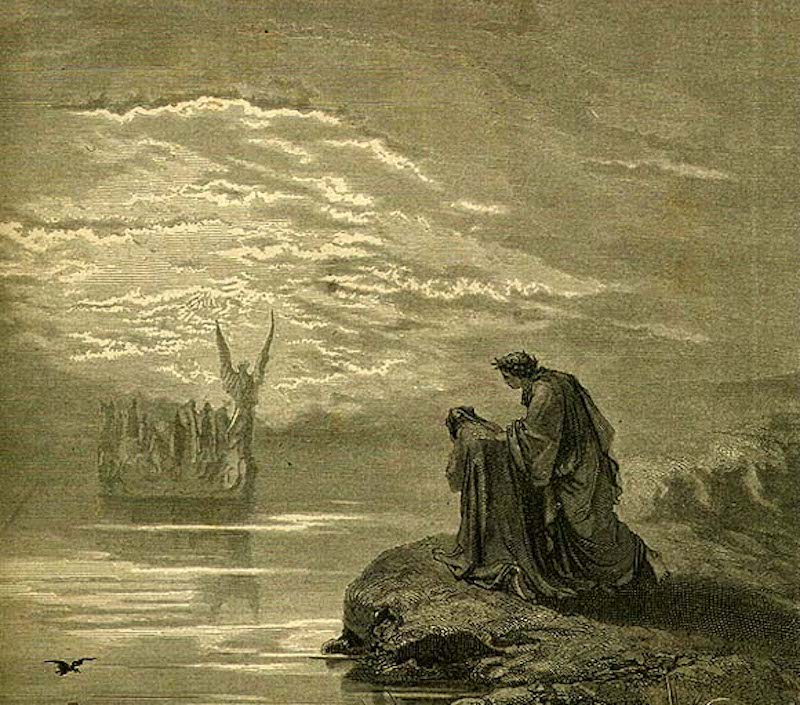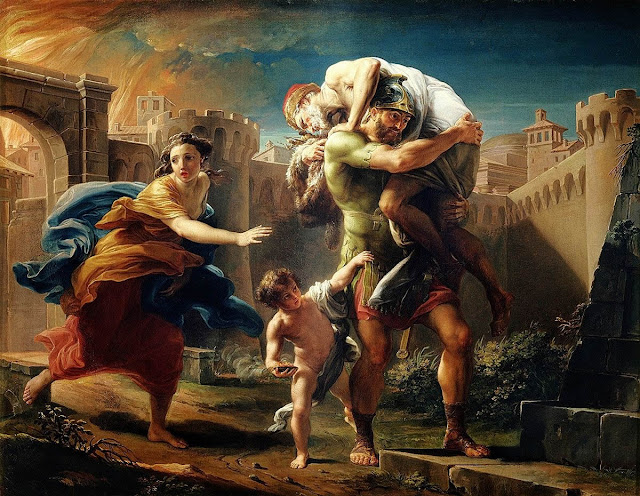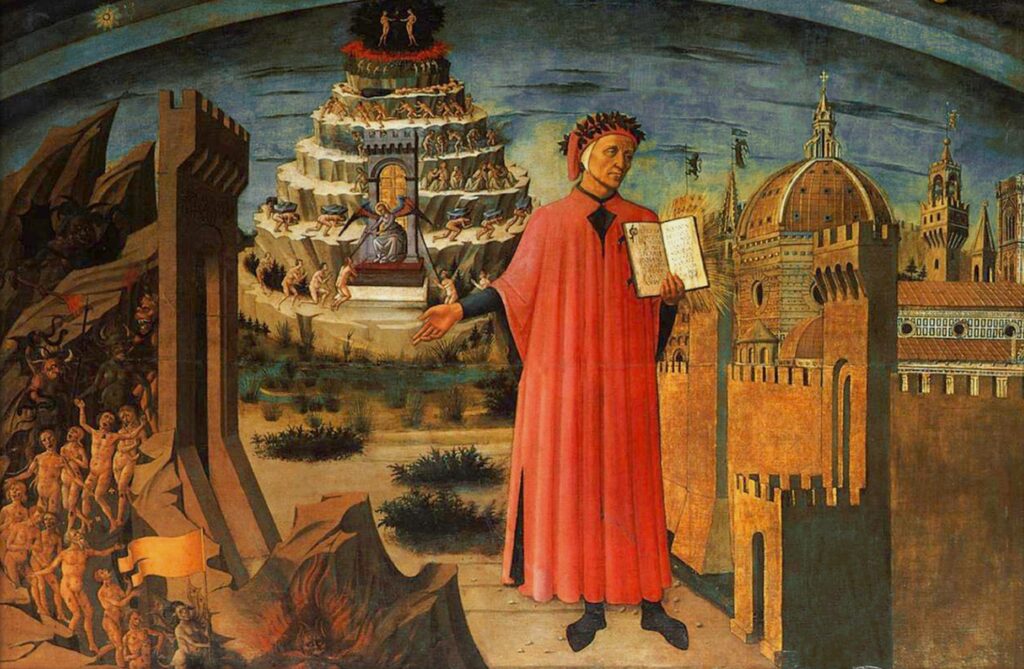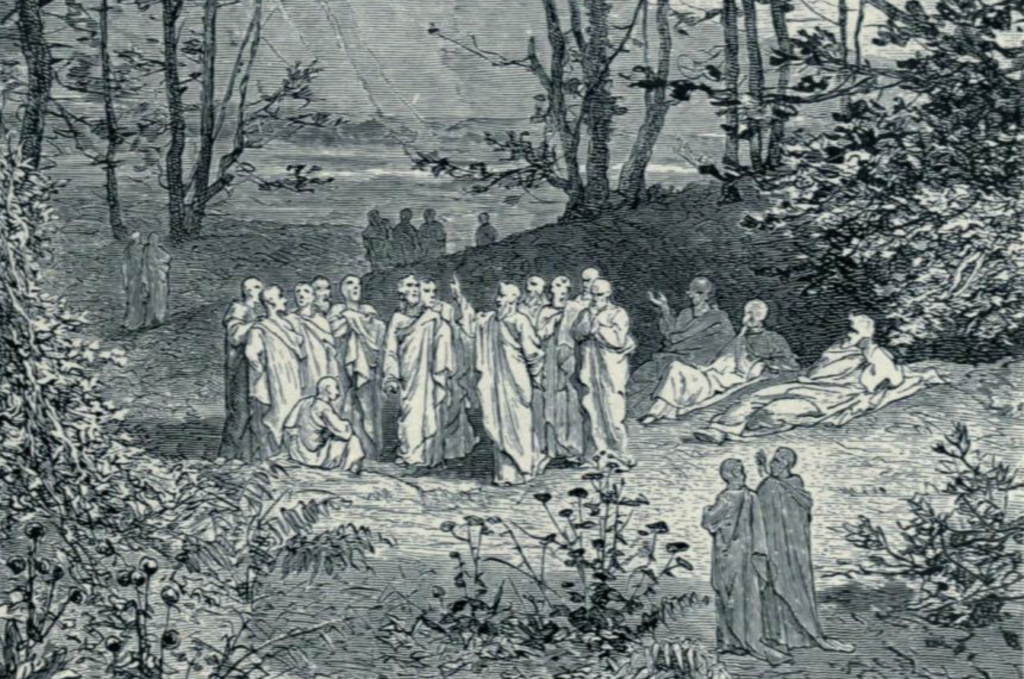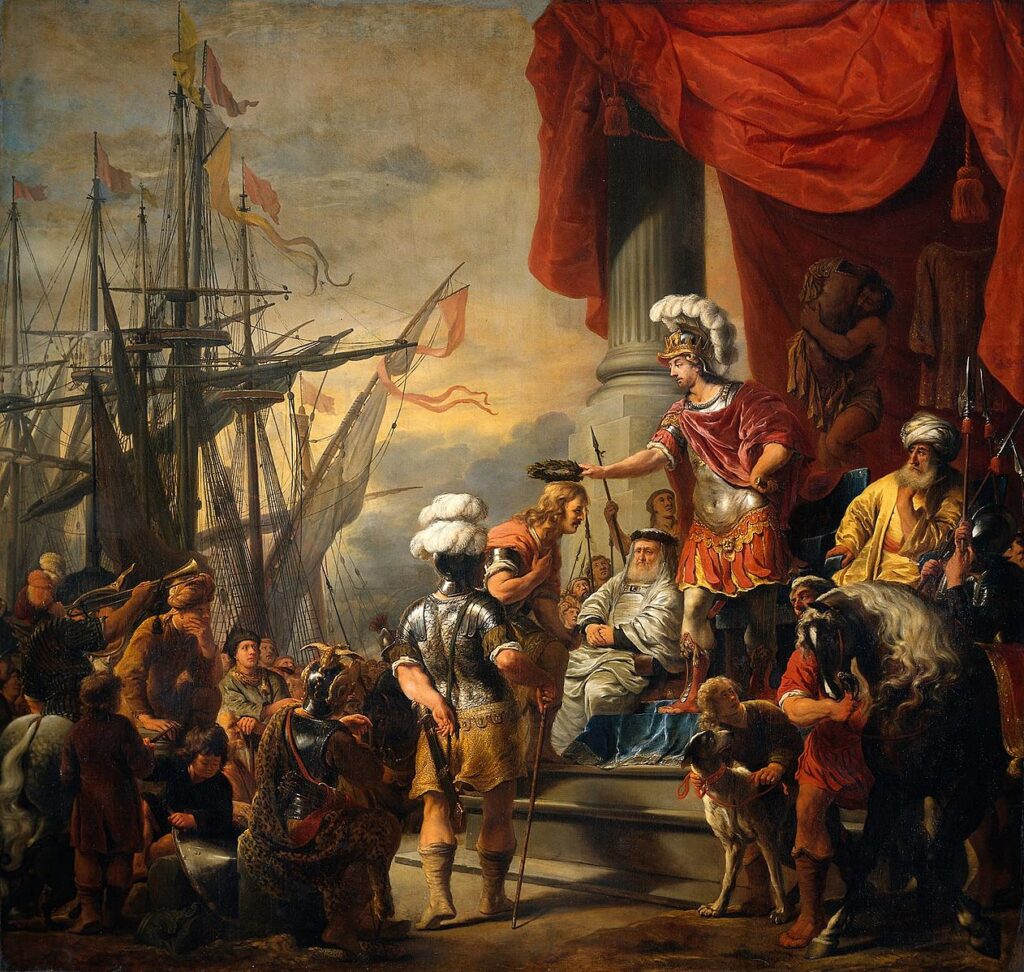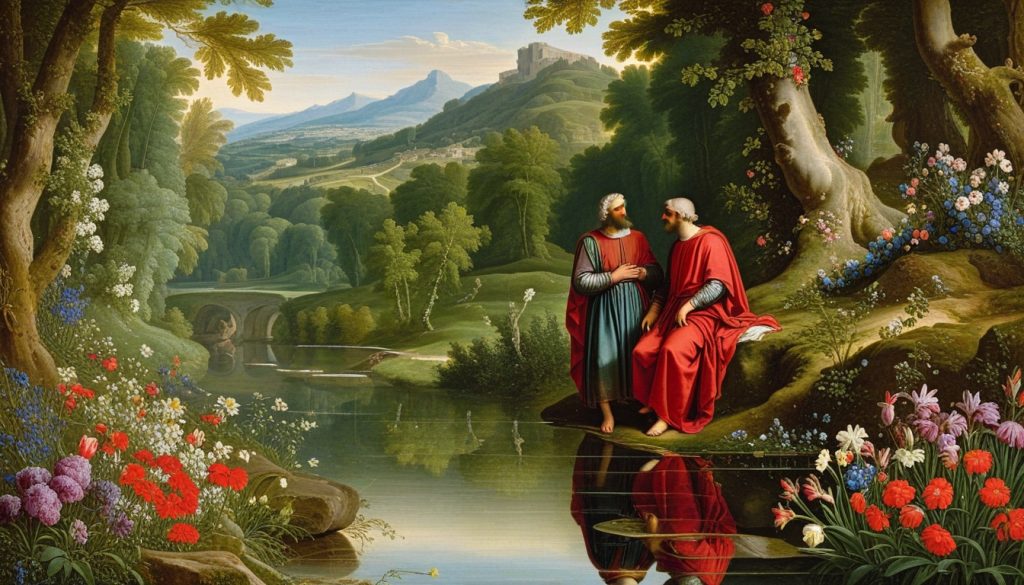
After the appearance of the 24 elders in the wake of the light of the Covenant, they slowly pass by and there are new and fresh flowers visible on the other side of the river – in part meaning new spiritual wisdom and life flourishing.
And then comes a new image in the unfolding vision of the Pilgrim: four animals crowned with green foliage, feathered with six wings, and the feathers full of eyes, comparing it to the Greek giant Argos with a hundred eyes.
These animals are representing the truth of the Gospels, in part as a deeper spiritual insight building on the older biblical stories, and also having hundreds of “eyes” as new aspects into spiritual truth and wisdom. And there is a double effect suggested; the Gospels both as having hundreds of eyes, but also as giving your soul hundreds of new eyes, too.
So, the revelation is continuing; we are in transformed life (as Eden), right at the threshold to the spiritual realm (the river bank), and if you mirror the acceptance of Mary with the “genoito moi”, “let it happen” internally, your soul and connection with God will experience a tremendous new opening into the Heavens.
Again, this is only possible after the arduous climb of the mountain, the rebirth of your soul, the “earthquake” of the mountain, and a long term development of dual perception that opens up for a spiritual and material unified experience of reality. This bears repeating; one can read Dante and Purgatory hundreds of times, but unless this inner transformation has happened, these passages will remain beautiful symbols, visuals, evocative poetry – but not spiritual and mystical real experiences. Still beautiful, but nothing remotely similar to the breakthrough of cascading insights and hundreds of new aspects appearing all at once, spiritually.
And on the side, this is partly a challenge with most modern Dante commentary that treats this as an “external allegory” and not as an internal real transformative experience. Many translations express a somewhat confused and chaotic impression of the Garden of Eden, which is natural – if the anagogical level (the Soul’s journey to God) is bypassed. The gifts and rewards at offer here are infinite, but only if the real journey is undertaken as participation, and real internal growth.
And the rhythm here is increasingly becoming more celestial too, with the insights appearing as “light follows light” – come luce luce in ciel seconda – in our preparation and journey up towards Paradise, and up into the Heavens.

